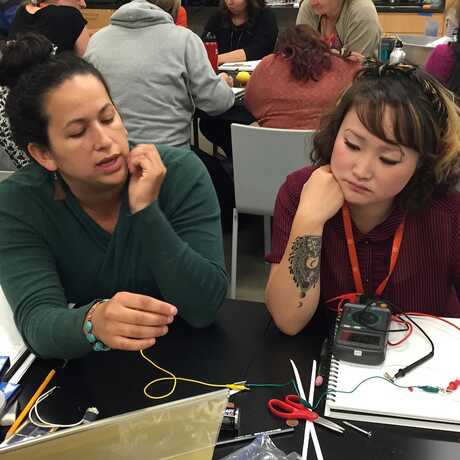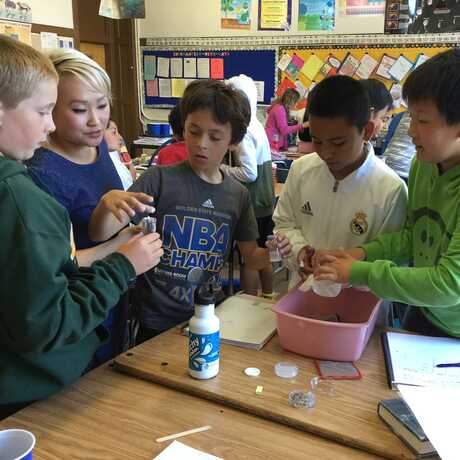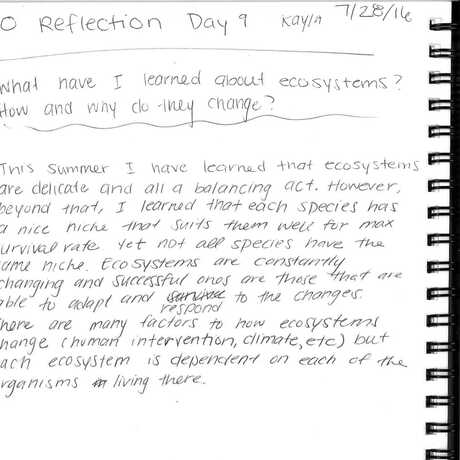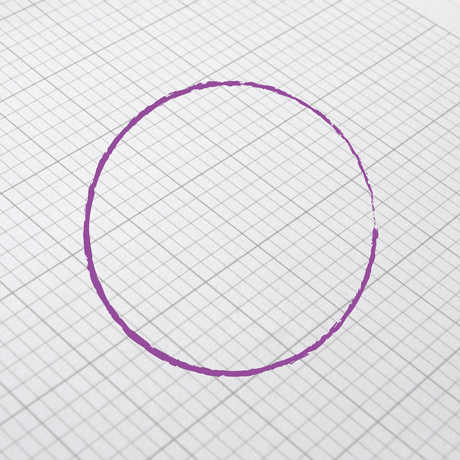
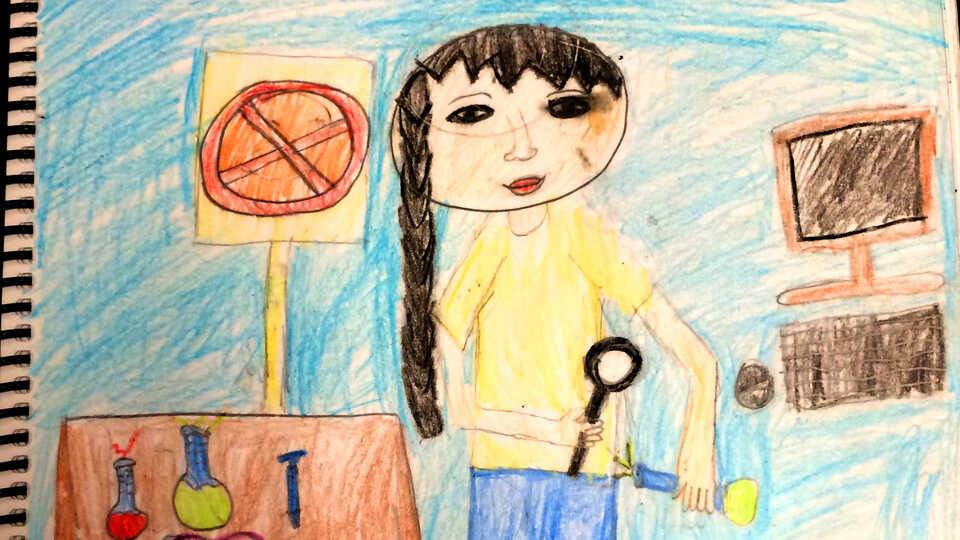
Support your students as they realize they are becoming scientists! Here you'll find notebook strategies which help students reflect on different careers, expand their conception of who can be a scientist, and picture themselves in the role.
About This Guide
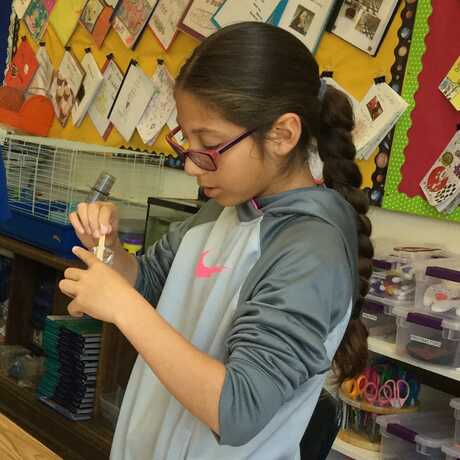
Below, you’ll find guidance related to using the science notebook for developing a science identity, including:
- reflecting on specific fields of science
- reflecting on what a scientist looks like
- sharing science autobiographies
Because we know teachers appreciate seeing the results of using these strategies, we've also created an example gallery containing student work.
Reflecting on Science Fields
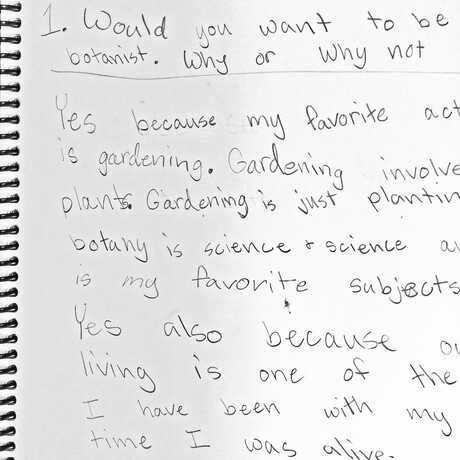
Use these strategies to connect science learning to students’ own interests and experiences.
For example, if students finish a plant unit in the school gardens, they could reflect with the writing prompt, “Would I like a career in Botany?”
Student reflections will probably allow you insight into what they absorbed during the plant unit, and what most caught their interest. This kind of reflection also starts to dissolve the artificial boundary that separates students from “real” scientists.
Reflecting on What a Scientist Looks Like
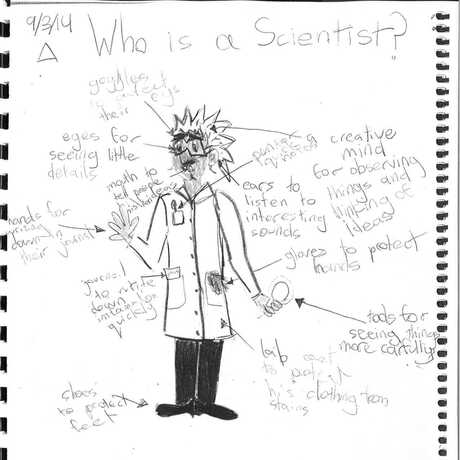
Use these strategies to help students monitor and expand their conception of who can be a scientist.
In the beginning of the year, ask students to draw what they thought a scientist looks like, as outlined in our Draw a Scientist lesson. Students can evaluate their initial ideas by reviewing a “Draw a Scientist Checklist,” seeded with some descriptors of scientists that they may not have considered [i]. A checklist like this can expand students' perceptions of what a scientist is or does.
You can follow-up these activities with video clips that show a range of scientists and what they do, such as this video about scientists who study bats.
Picturing Yourself as a Scientist
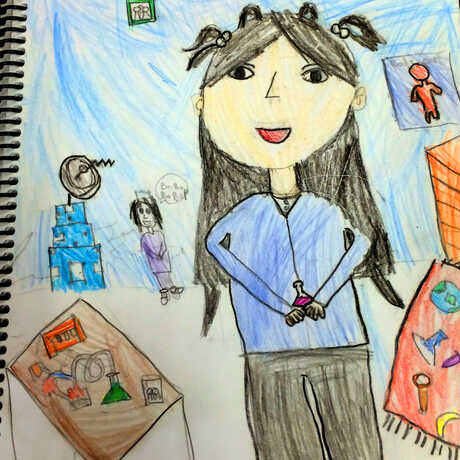
Later in the year, after students have engaged in some science experiences, instruct them: “Draw yourself as a scientist.” This exercise is especially empowering if students didn't previously think of themselves as scientists.
Students can also write their own “science autobiography,” either in one sitting or in stages. Initially, they can simply recount a cool science experience: when they visited a science museum, did an experiment in class, or tried something at home. They can expand on this autobiography with entries throughout the year that describe their experiences with science.
Students can also share their science stories through peer interviews. Students can ask each other questions like, What was your first experience with science? Do you ever do anything at home that’s like science? Have you ever met a scientist? Do you consider yourself a scientist? Why or why not? They can use the notebook to take notes, and later to craft a brief presentation of their interview partner’s experience with science.
How To Make It Happen
- Have students draw their ideas of what a scientist looks like early in the year, so they can revise their perceptions over time.
- Make room for students to share personal experiences with science, whether they are positive, negative, or neutral.
- Remind students that science done in non-traditional settings – outside, in the kitchen, in the basement, etc. – is real science.
Notes from the Classroom
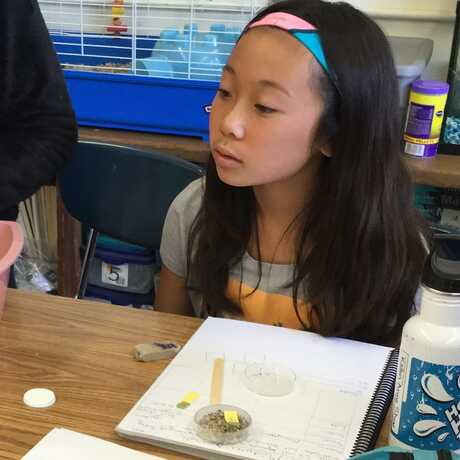
Rachel was teaching a unit on rocks and minerals. At the end of the unit, she asked her students to voice their opinions on the topic of geology. She asked, What did you learn? What does a geologist do? Would you want to be a geologist?
While many kids learned a lot and enjoyed geology, others disagreed. One student commented, “ I mean, rocks……what more is there to say, really?”
Rachel created a safe enough environment for students to express their honest opinions. Not every type of science is for everyone! This kind of reflection can also help students down the road as they learn to follow their passions, both in and out of school.
References

Science Notebook Corner
Learn how notebooks can help your students think and act like scientists.
